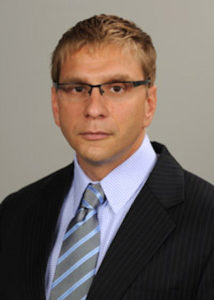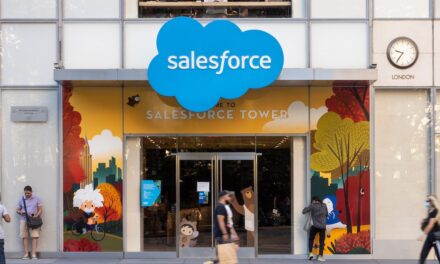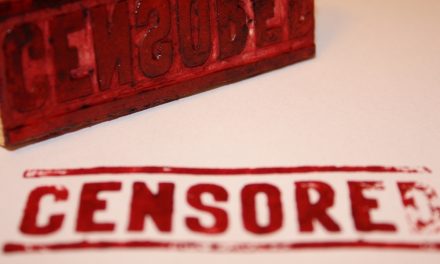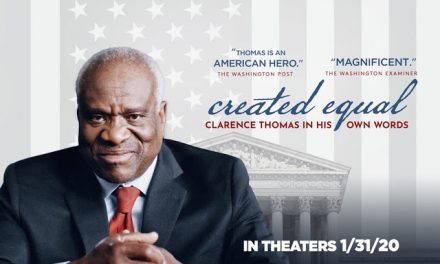LTP News Sharing:
Washington, D.C. – American Airlines CEO Doug Parker claimed today that the company’s opposition to election integrity laws is based on feedback from his employees, the NAACP and CEOs of other companies.
In his response to a question posed by the Free Enterprise Project (FEP) of the National Center for Public Policy Research, Parker failed to note that American Airlines employees are discouraged from speaking up in opposition to Parker’s own woke personal politics, at the risk of losing their jobs.

Scott Shepard
At American Airlines’ annual shareholder meeting, FEP Deputy Director Scott Shepard submitted this question:
I’m Scott Shepard with the National Center for Public Policy Research.
After an initial rush by corporations to condemn Georgia’s election-integrity law, most of them reversed their positions, “clarifying” that they do not object to any specific provisions of that law and merely seek accessible but secure and clean elections, as we all do. And they refrained from condemning Texas’s election-integrity law. But not American Airlines. It spoke out in a way that the Wall Street Journal reported was meant as a direct condemnation of the Texas law. Can you now tell us exactly which provisions of the Texas law you object to and why, and suggest specific substitute proposals that will still ensure that Texas elections are free of fraud and error?
Company executives reworded the question and asked Parker: “It seems like American is going out of its way to get involved in political issues, specifically voter legislation. Why is that? Why are we taking a position there?”
Parker responded:
Yeah, thanks for the question. Our view is that we’re not getting involved on political issues. This is not us looking to pick one side of a bipartisan issue; it’s us looking to pull people together.
As it relates to the question, I’m certain it’s related to our statement that American made about voter legislation that was introduced in Texas, where we are headquartered. That legislation was put forward as an effort to increase voter integrity, to allay concerns about the lack of voter integrity – obviously something that all Americans favor: ensuring that votes do have a high level of integrity.
The problem with that legislation though is, in trying to help integrity, it also is making it much harder for people to vote and indeed for certain groups of people to vote. It made them feel disenfranchised. And we began to hear about that from our team members. We began to hear about it from black CEOs around the country, black executives around the country. And our view is, and will continue to be, that we need to support our team. Our team came forward and let us know that this was really important to them, and they know that American Airlines has a voice in this regard. We should raise our voice in their support.
And again, not on one side of a partisan issue, but rather to try to get people to work together. If indeed voter integrity is a large concern for a group of people, we should work to address that concern, but we should work to address it in a way that doesn’t make another group of people feel disenfranchised and make it harder for them to vote. There have to be ways to do this, and corporations will go away on this point once those that are working toward voter integrity, in doing so, don’t generate large concerns from – particularly – groups like NAACP Legal Defense Fund, like a group of black executives around the country, and like team members at American Airlines, who feel like this is going to make it harder for them to vote.
Again, that’s what it’s about; that’s what we’re about. We have an obligation to support our team. What we do is bring people together; we’re trying to bring people together on this point, on what is clearly a divisive point. Again, not picking one side of the divider point. Trying to get people to work together.
After the meeting, Shepard responded:
Doug Parker’s response raises more concerns about American’s opposition to the Georgia and Texas election integrity bills, without addressing and allaying any. He was offered a clear chance to say specifically what he objected to in the bill, and to suggest alternative methods by which integrity could be ensured. He and his team not only ignored the opportunity, but hid it from sight by rephrasing our question. Parker admitted that election integrity is vital, but then said that American opposed the bills because “our team” objected to them.
But at American, the resort to “our team” is rigged as well. American has been requiring employees to attend training sessions in which the company encourages expressions of wokeness, while making clear that any expressions in opposition to wokeness will put employees’ jobs in danger. As long as that’s true, American is determining in advance which of these “team members” get a say, and which are silenced. And so Parker’s claim that company executives are only doing what their “team” demands is a choreographed lie.
If Parker wants the company to act in genuine response to employee concerns, he must protect all employees’ free and full expression of their concerns and opinions. Until he does that, he’s just putting the words he wants to hear in the mouths of his employees, and then using those words as a justification when they parrot them back to him.
This is, in effect, making important company decisions not on the basis of business judgment, but on the basis of Parker’s own sock-puppeted personal policy and political preferences. That violates his fiduciary duty to shareholders in ways that open him and the executive suite up to personal liability, as it should. So does, and should, the company’s handing over its public policy decisions to outside organizations like the NAACP Legal Defense Fund, without independently and objectively scrutinizing the conclusions of those organizations to ensure that American Airlines makes decisions for the long-term benefit of the company rather than for the advancement of third-party interests.

Davis Soderberg
Davis Soderberg, an FEP associate who also attended the meeting, added:
Parker’s answer didn’t make much sense and was incredibly contradictory. His first claim was that American Airlines won’t get involved in political issues and won’t take one side of a partisan issue. Two sentences later, he took a side on a partisan issue and got overtly political about the Texas voter integrity bill. Parker promised that large corporations will go away on the topic once it is changed to align with his wishes. So, according to his logic, he won’t get involved in any political matters, with the exception of political matters with which he disagrees.
Not only is his self-awareness astonishingly poor, his claim that the bill disenfranchises certain demographics is based on falsehoods about what is truly in the legislation. As always, these outspoken CEOs make claims of discrimination, racism and disenfranchisement but never give any specifics.
Corporations should stay out of all political matters. If workers or executives have issues with legislation, they should stop running to the CEOs of massive corporations for help. Rather, they should go to officials who have been elected to serve the people through the democratic process. Doug Parker has it all wrong.
Conservative investors can learn how to oppose leftism in corporate America by downloading FEP’s new 2021 Investor Value Voter Guide and Balancing the Boardroom voting guide. The new website Stop Corporate Tyranny also provides tools for engagement with corporate leaders.
Today’s meeting marks the 41st time FEP has participated in a shareholder meeting in 2021. To schedule an interview with a member of the Free Enterprise Project on this or other issues, contact Jenny Kefauver at (703) 850-3533.
Launched in 2007, the National Center’s Free Enterprise Project focuses on shareholder activism and the confluence of big government and big business. Over the past four years alone, FEP representatives have participated in over 100 shareholder meetings – advancing free-market ideals about health care, energy, taxes, subsidies, regulations, religious freedom, food policies, media bias, gun rights, workers’ rights and other important public policy issues. As the leading voice for conservative-minded investors, it annually files more than 90 percent of all right-of-center shareholder resolutions. Dozens of liberal organizations, however, annually file more than 95 percent of all policy-oriented shareholder resolutions and continue to exert undue influence over corporate America.
FEP activity has been covered by media outlets including the New York Times, Washington Post, USA Today, Variety, the Associated Press, Bloomberg, Drudge Report, Business Insider, National Public Radio and SiriusXM. FEP’s work is prominently featured in Stephen Soukup’s new book The Dictatorship of Woke Capital: How Political Correctness Captured Big Business (Encounter Books) and Kimberley Strassel’s 2016 book The Intimidation Game: How the Left is Silencing Free Speech (Hachette Book Group).
The National Center for Public Policy Research, founded in 1982, is a non-partisan, free-market, independent conservative think-tank. Ninety-four percent of its support comes from individuals, less than four percent from foundations and less than two percent from corporations. It receives over 350,000 individual contributions a year from over 60,000 active recent contributors.
Sign up for email updates here. Follow us on Twitter at @FreeEntProject and @NationalCenter for general announcements. To be alerted to upcoming media appearances by National Center staff, follow our media appearances Twitter account at @NCPPRMedia.
Author: The National Center







